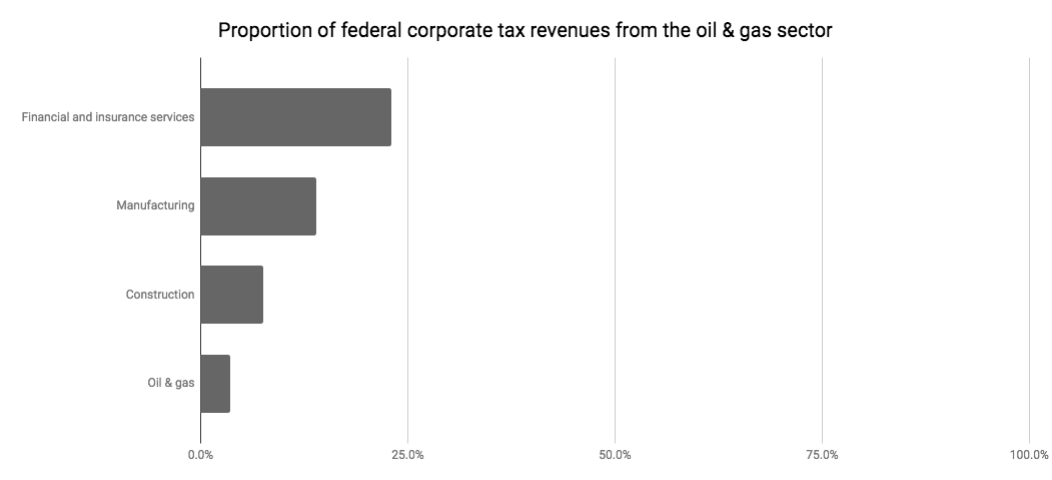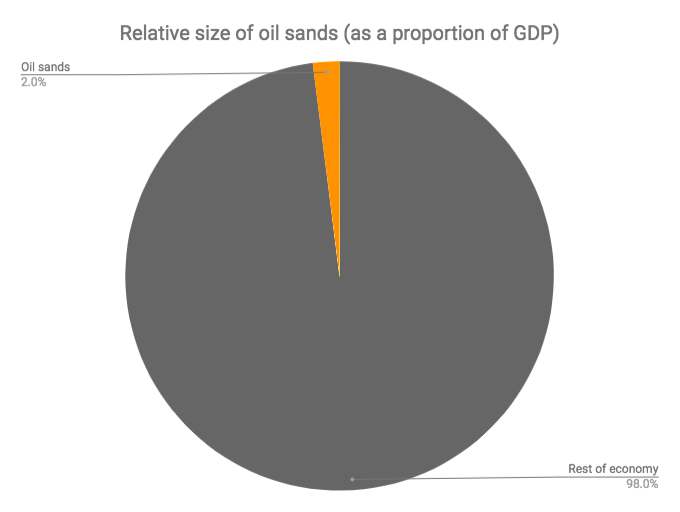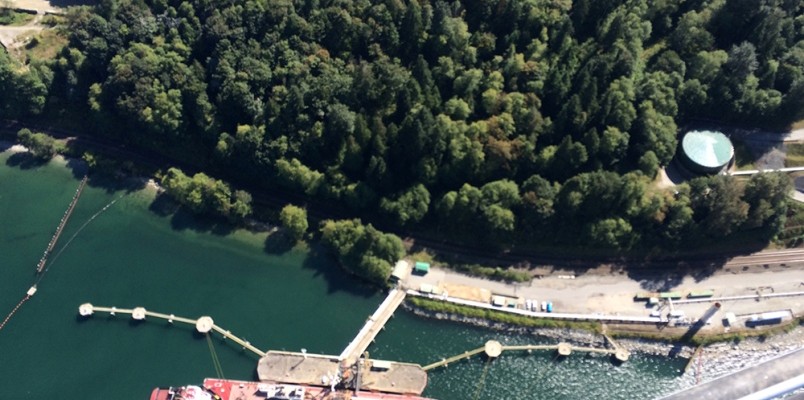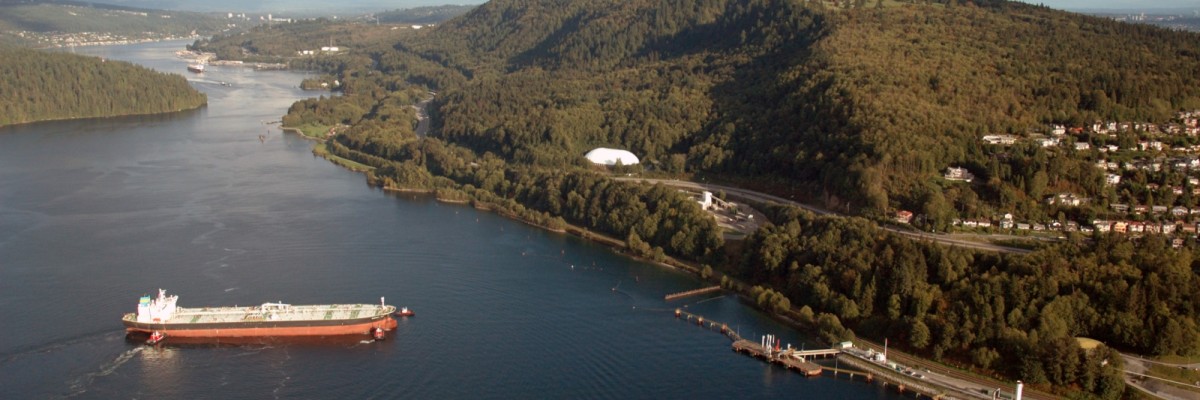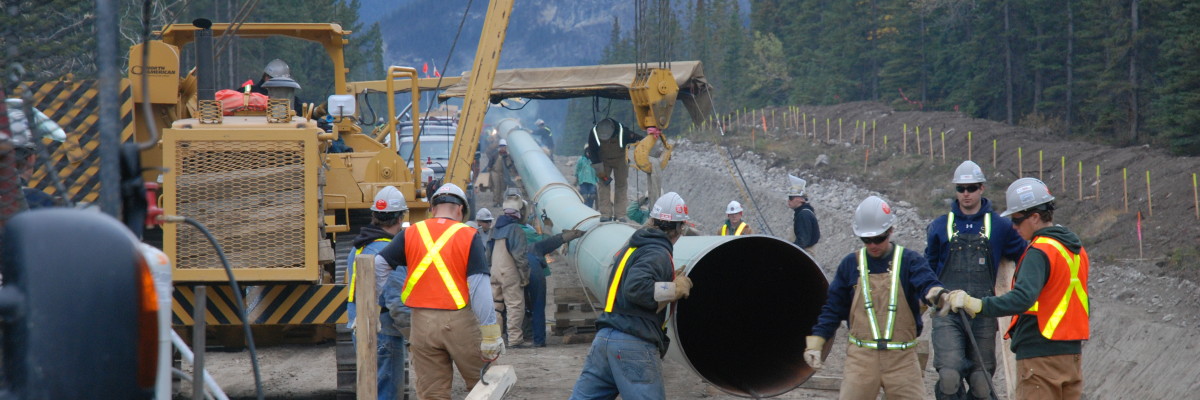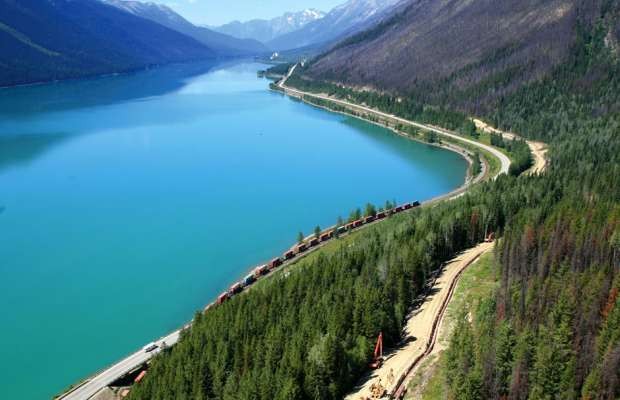
Posted by Felicity Lawong
As we approach the final week of the National Energy Board (NEB) review of the Trans Mountain pipeline, the federal government just announced an added environmental assessment and community engagement process to all currently proposed bitumen pipeline and LNG projects. These added components will apply to the Trans Mountain pipeline expansion, and is considered an interim measure while the federal government takes at a longer period to rebuild the NEB.
The Who, What and When of the Interim Measures
Minister of Natural Resources James Carr and Minister of Environment and Climate Change, Catherine McKenna announced the measures in an attempt to restore the faith of Canadians in the NEB process, and to set the tone for a later overhaul of the NEB. The federal government announced that they would manage the following activities after the NEB oral hearings have concluded:
- ‘Deeper’ First Nations consultations, with attached funding to support participation
- Assessment and public dissemination of upstream GHG emissions associated with the project
The time frame indicated for these activities will tack on an extra four months to the review process before Cabinet will make a final decision – effectively extending the final decision date to December 2016.
CRED welcomes the important addition of incorporating upstream GHG emissions into the environmental review and engaging in direct consultation with First Nations. We are concerned that it does little to resolve the ‘core’ concerns of a broken review process in the context of Trans Mountain. While these interim measures are a step forward, they don’t go far enough. Intervenors are still left with mountains of unanswered questions to Kinder Morgan, evidence of economic impact has still not been cross examined, and key scientific research related to bitumen in the marine environment remain outside of the purview of the board. CRED is concerned about the lack of substantive discussion around the business case for the TMEP, and the potential negative economic impacts of increased bitumen traffic on BC businesses.
Significant questions remain about the details and tactics of this added review component. Do these new measures rectify the concerns heard in Burnaby in last week’s oral hearings? We’ve summarized the main points we found interesting:
Highlights of the Burnaby Oral Hearings
The vast majority of intervenors at the Burnaby hearings were against the pipeline expansion project on grounds of poor consultation as well as environmental and social impact. Some intervenors, however, did focus in on the economic realities and risks of the project:
City of Burnaby – Burnaby legal counsel Gregory McDade gave the NEB panel a scathingly articulate rebuke of the review process, and left no doubt as to the disposition of the City where the pipeline would meet tidewater. McDade reminded the panel that while proponents and some stakeholders want the project to be perceived as being in the national interest, the negative economic, environmental and social impacts disproportionately accrue to British Columbians. He reiterated a major concern for CRED members: the unsatisfactory state of evidence on bitumen spill risk being considered by the panel. He challenged as to whether there has been testing of competing scientific evidence than that put forward by the project proponents. We are all gaining awareness of the potential impact to BC coastal businesses across a spectrum of industries in the case of a bitumen spill in our waters.
Perhaps the most incisive comment of all, however, was when he stated, “Burnaby should not be the last victim of a flawed process.” Indeed.
Living Oceans Society – Most of the Living Oceans Society presentation concentrated on the significant deficiencies in Kinder Morgan’s environmental impact assessments in the marine environment – including the impossibility of cleaning up diluted bitumen in open water. They also presented timely research findings on the actual economic impacts of the potential pipeline expansion.
In December of 2015, the Living Oceans Society and SFU published findings that the economic benefits of the pipeline expansion have been grossly overstated, while the negative impacts – environmental and economic – are not quantified at all by the KM impact measurement methodology. We encourage people to read this research to get a more fulsome understanding of how a comprehensive, triple-bottom-line review of industrial projects will more accurately assess the benefits and potential risks of a project.
Independent Contractors and Businesses Association of BC – Association President Phil Hockstein spoke briefly but eloquently about the interests and concerns of the many BC contractors who stand to benefit significantly during the construction stage of the project. While Mr. Hockstein represented his membership well, and rightly articulated the potential benefits of pipeline construction to them, we were disappointed at his assertion that a ‘small minority’ in BC oppose the pipeline expansion. The Provincial government, all lower mainland municipal governments, several First Nations, multiple businesses and, in fact 68% of British Columbians are asking for the NEB to be revamped before a decision is rendered on the pipeline.
While we await more information, CRED and our partners the Board of Change and the Green Chamber of Commerce BC will be launching our Open Letter to Prime Minister Trudeau next week, encouraging him to go ahead and revamp the National Energy Board in advance of making a decision on Trans Mountain. We invite you to sign on to the letter and encourage other interested businesses to do the same.


